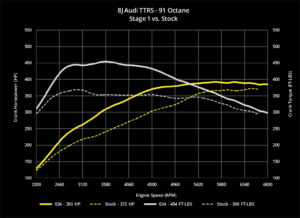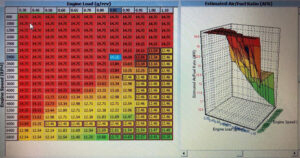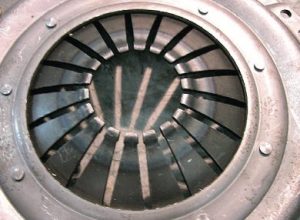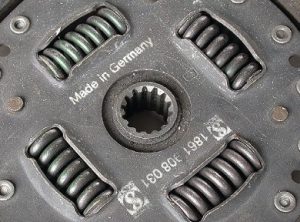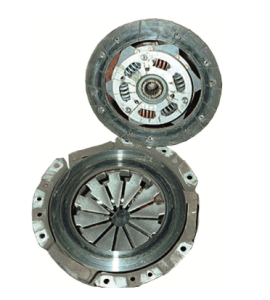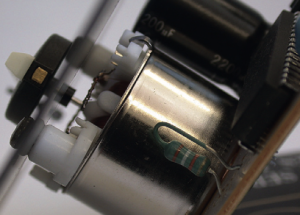Hot rodding electronic diesel engines has become increasingly popular among automotive enthusiasts in recent years. With advancements in technology, electronic diesel engines offer a vast array of customization options that were once thought impossible. From increased horsepower to improved fuel efficiency, hot rodding electronic diesel engines can turn an average diesel truck into a powerful and efficient machine.
One of the biggest advantages of hot rodding electronic diesel engines is the ability to increase horsepower and torque. This is achieved by modifying the engine’s computer system, which controls fuel injection and timing. By adjusting these parameters, more fuel can be injected into the engine, resulting in increased horsepower and torque. Additionally, turbochargers and superchargers can be added to the engine to increase airflow and further boost power.
Fuel efficiency is also a major concern for many diesel engine owners, and hot rodding can help in this area as well. By optimizing the engine’s performance, fuel can be used more efficiently, resulting in improved fuel economy. Additionally, upgrades such as exhaust systems and air intake kits can improve the engine’s efficiency by increasing airflow and reducing restriction.
Another benefit of hot rodding electronic diesel engines is the ability to customize the engine’s sound. Upgraded exhaust systems can provide a more aggressive exhaust note, while sound dampening materials can reduce cabin noise and provide a quieter ride. These modifications not only enhance the driving experience but also add to the overall aesthetic of the vehicle.
However, it’s important to note that hot rodding electronic diesel engines requires proper knowledge and expertise. Modifying the engine’s computer system and adding aftermarket parts can have unintended consequences if not done correctly. It’s important to work with a qualified mechanic or tuner who has experience with electronic diesel engines to ensure proper installation and tuning.
In conclusion, hot rodding electronic diesel engines is a fantastic way to improve the performance and efficiency of a diesel truck. From increased horsepower and torque to improved fuel economy, the benefits are numerous. With the right knowledge and expertise, hot rodding electronic diesel engines can turn an ordinary truck into a powerful and exciting machine that’s sure to turn heads.
The Benefits of Diesel and Turbo-Diesel Engine Management
Diesel and turbo-diesel engines have come a long way in terms of performance and efficiency over the years. With advancements in technology, engine management systems have become more complex, allowing for greater control over various engine parameters. From improving fuel efficiency to increasing power output, diesel and turbo-diesel engine management is a crucial aspect of modern automotive engineering.
One of the key benefits of diesel and turbo-diesel engine management is improved fuel efficiency. By controlling fuel injection timing and quantity, engine management systems can optimize fuel consumption for maximum efficiency. This can result in significant cost savings over time, as well as reducing the vehicle’s environmental impact.
Another advantage of diesel and turbo-diesel engine management is increased power output. By adjusting fuel injection timing, turbocharger boost pressure, and other engine parameters, more power can be extracted from the engine without sacrificing reliability. This is particularly important in commercial applications where vehicles need to be able to haul heavy loads or operate in demanding conditions.
Engine management systems also play a vital role in emissions control. With increasingly stringent emissions regulations, it’s important for diesel and turbo-diesel engines to be able to meet these standards without sacrificing performance. Modern engine management systems use advanced sensors and software to monitor exhaust gases and adjust engine parameters in real-time to ensure compliance with emissions regulations.
Another benefit of diesel and turbo-diesel engine management is improved engine longevity. By controlling the engine’s operating conditions, engine management systems can help to prevent premature wear and damage. This can result in a longer lifespan for the engine, reducing maintenance costs and downtime.
However, it’s important to note that diesel and turbo-diesel engine management requires specialized knowledge and expertise. Modifying engine management systems without proper understanding can lead to unintended consequences such as reduced reliability, increased fuel consumption, and decreased performance. It’s important to work with experienced technicians who understand the intricacies of engine management systems and can provide proper tuning and maintenance.
In conclusion, diesel and turbo-diesel engine management is a critical aspect of modern automotive engineering. From improving fuel efficiency to increasing power output and reducing emissions, the benefits are numerous. With proper knowledge and expertise, diesel and turbo-diesel engine management can help to optimize engine performance, improve reliability, and provide significant cost savings over time.


